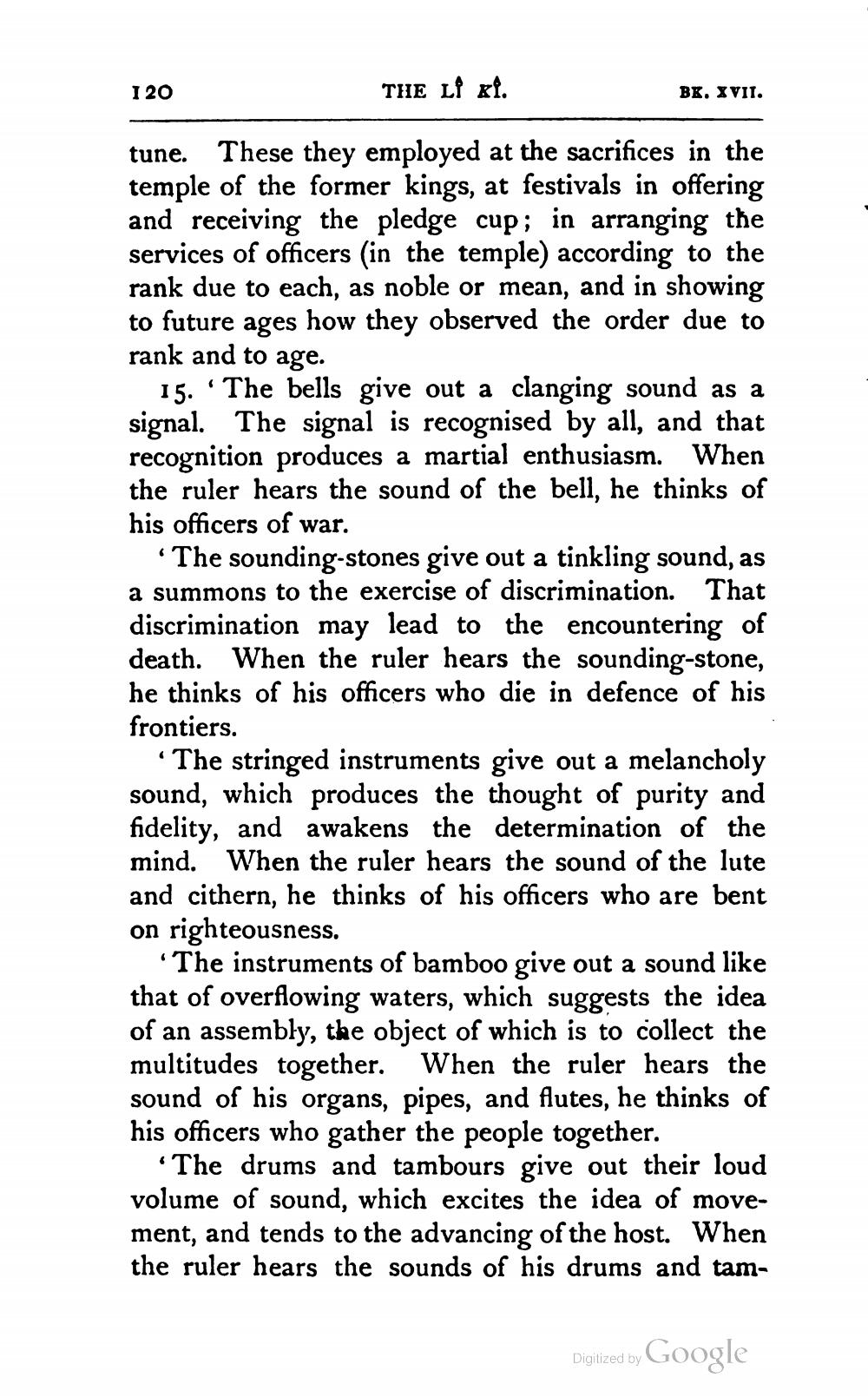________________
I 20
THE LÎ xf.
BK. XVII.
tune. These they employed at the sacrifices in the temple of the former kings, at festivals in offering and receiving the pledge cup; in arranging the services of officers in the temple) according to the rank due to each, as noble or mean, and in showing to future ages how they observed the order due to rank and to age.
15. 'The bells give out a clanging sound as a signal. The signal is recognised by all, and that recognition produces a martial enthusiasm. When the ruler hears the sound of the bell, he thinks of his officers of war.
"The sounding-stones give out a tinkling sound, as a summons to the exercise of discrimination. That discrimination may lead to the encountering of death. When the ruler hears the sounding-stone, he thinks of his officers who die in defence of his frontiers.
*The stringed instruments give out a melancholy sound, which produces the thought of purity and fidelity, and awakens the determination of the mind. When the ruler hears the sound of the lute and cithern, he thinks of his officers who are bent on righteousness.
The instruments of bamboo give out a sound like that of overflowing waters, which suggests the idea of an assembly, the object of which is to collect the multitudes together. When the ruler hears the sound of his organs, pipes, and flutes, he thinks of his officers who gather the people together.
The drums and tambours give out their loud volume of sound, which excites the idea of movement, and tends to the advancing of the host. When the ruler hears the sounds of his drums and tam
Digitized by Google




